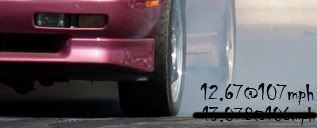re
What Ive found with dex cool, is that when it gets old it causes problems. My family has two fullsize 98 chevy trucks, and a fullsize van, all with Vortec 350s. All of the lower intake gaskets went bad. Most likely the reason was because the dex cool was too old, and was never changed. I think its mostly due to its age, and not the mileage. Seems like our intake gaskets went bad after the antifreeze was about 7 years old (assuming it had original in it). Of course over time you might replace a little bit of antifreeze in case of leakage, but you really need to flush out as much as you can before 5 years in my opinion. After changing the gaskets on these trucks, we havent had any problems since. I guess when they advertise 5 years, 100,000 miles, you dont really think about changing your antifreeze that much. I just thought I would share my experience with the stuff. Change it on time and I dont think it will give you any problems.
What Ive found with dex cool, is that when it gets old it causes problems. My family has two fullsize 98 chevy trucks, and a fullsize van, all with Vortec 350s. All of the lower intake gaskets went bad. Most likely the reason was because the dex cool was too old, and was never changed. I think its mostly due to its age, and not the mileage. Seems like our intake gaskets went bad after the antifreeze was about 7 years old (assuming it had original in it). Of course over time you might replace a little bit of antifreeze in case of leakage, but you really need to flush out as much as you can before 5 years in my opinion. After changing the gaskets on these trucks, we havent had any problems since. I guess when they advertise 5 years, 100,000 miles, you dont really think about changing your antifreeze that much. I just thought I would share my experience with the stuff. Change it on time and I dont think it will give you any problems.



Comment